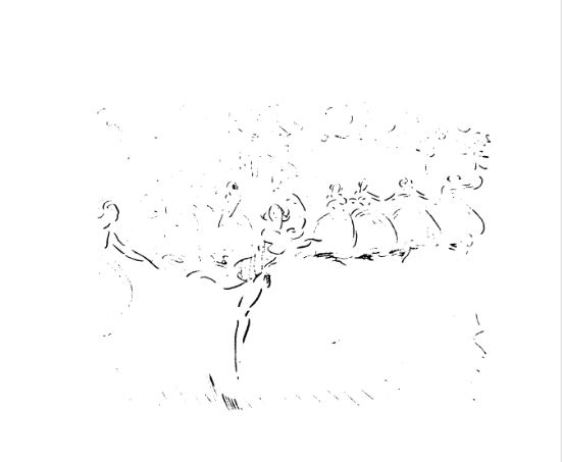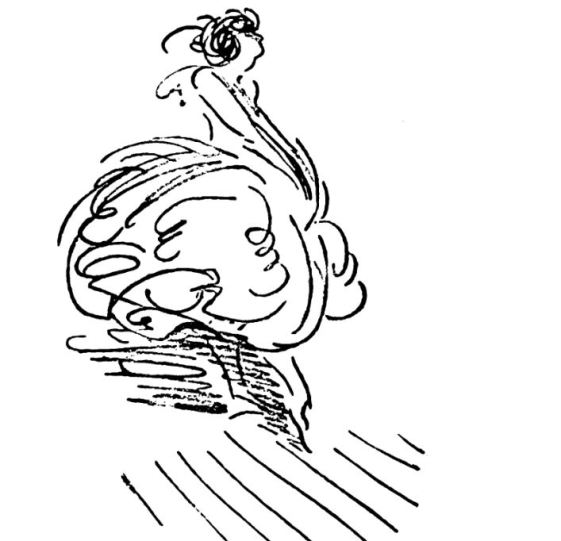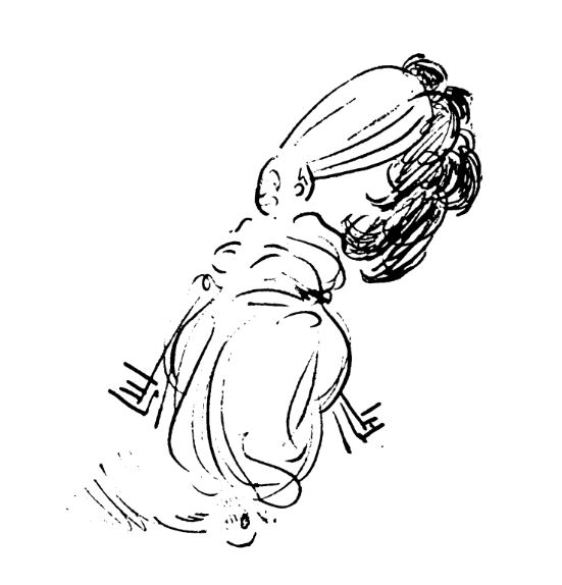Source: Junichiro Tanizaki (trans. Paul McCarthy), Childhood Years: A Memoir (London: Collins, 1990, orig. pub. 1957), pp. 128-136
Text: Another traditional genre that impressed me as much as kagura — indeed, | think, rather more — was chaban. More properly called chaban kyogen, it is described by Shimmura Izuru in his well-known dictionary as ‘a comic farce employing jokes and puns accompanied by gestures and other movements of the body, and utilizing as material for humor whatever happens to be at hand,’ a definition that seems to me both simpler and more to the point than the one given in the Daigenkai dictionary. The Tokyo chaban kyogen was much like the Osaka niwaka, a genre that is now almost extinct. One difference, however, lay in the fact that the niwaka was performed by specialists like Tsuruya Danjuro, who were organized into professional troupes, some of which made their appearance in Tokyo as well from the latter part of the nineteenth century on. The people who did chaban were mostly just amateurs who were fond of the theater; it was not so much an art form as a simple pleasure or pastime. Sometimes they performed at private parties or gatherings, but it was on the kagura stage of the Meitoku Inari Shrine, on the evening of the eighth of each month, that I most frequently had the chance to see them. For the custom at the Meitoku Inari was to present kagura in association with the monthly fairs only occasionally; more typically their place was taken by chaban …
The kagura pieces were presented in the afternoon, always ending by nightfall. The chaban, on the other hand, began at dusk and continued until nine or ten, or sometimes even till close to eleven o’clock. Again, in contrast to kagura, the chaban had considerable appeal for adults, about as much as the manzai vaudeville dialogues have for people today. So the performances were always quite crowded — though ‘crowded’ here means not more than a hundred people at best, since the audience was limited to the women, children, young girls, and miscellaneous idlers with time on their hands from the Kayaba-cho, Kamejima-cho, and Reiganjima area. It had to be fairly dark before anything could begin, so the drum announcing the performance and inviting the audience to attend did not start to sound until around six. Then a ladder would be placed at the back of the kagura hall and the actors would climb up onto the stage.
“There goes Suzume!’
‘Look, it’s Cho-cho!’
“That one there’s Ko-hana.’
The girls, baby-sitters and shop assistants, would cluster around the foot of the ladder, chattering away. Some would even climb the ladder themselves and peek through the curtain that divided the ‘dressing room’ from the stage area proper.
The first few pieces, performed while there was still some light in the sky and the audience was small, tended not to be very interesting — just short sketches, comic dialogues, and the like. As the evening went on, longer, more elaborate numbers were introduced. As in the Osaka niwaka, the troupe would begin a well-known Kabuki drama, playing it straight at first and then suddenly introducing comic and burlesque elements halfway through. It was, in fact, through the chaban that I became acquainted with many plays in the Kabuki repertoire that I had not yet seen at a regular theatre …
Very few props were used, and there was no scenery or backdrop except for a persimmon-colored curtain with “The Suzume Troupe’ or something of the sort inscribed on it. The wigs were for the most part made of cotton or papier-maché, though in time more money came to be spent on such things and regular theatrical wigs and splendid costumes were acquired. Originally, in keeping with the character of chaban, most of the things they did were comic; but afterward that changed, and they began to perform more serious pieces like ‘The Earth Spider.’ Still, they continued to do burlesque versions of scenes like O-han and Choemon’s journey: the audience would roar with laughter at the sight of an oversized man playing dainty O-han, dressed in a long-sleeved Yuzen muslin kimono, and borne on the back of a panting smaller actor in the role of Choemon. Struck by O-han’s heaviness and thinking her pregnant, Choemon says, ‘Have you conceived?’ She answers, ‘Conceived of what?’; to which he replies, “Conceived of such a mess as we’re in now!’ When Choemon recites the poem ‘Sharing a pillow for one night at the inn at Ishibe … and you with an unborn babe of seven months besides,’ O-han says in reply ‘But babes, like bibs, are easily misplaced . . .” And so on. In the end Choemon tires of it all and flings O-han off his back onto the ground …
Speaking of cruelty, in the old days scenes like the murder of Yoichibei in Chushingura were not played on the Kabuki stage in the simpler, more restrained way they are today. There would be a long dialogue beginning with the line often used in Otsu-e illustrations of the episode, ‘Hey, old man!’ and continuing with other well-known lines: ‘No, no, it’s not the money .. .’; and ‘Here are the rice balls, sir, all ready for you…’; and “There is a ringing in my ears… a mist before my eyes.’ Only after this long, wordy exchange would the climactic action come: Yoichibei thrown onto his back; Sadakuro mounted on his chest like a horseman; the knife slowly, carefully carving away at Yoichibei’s entrails; his last, agonized breath.
That is just the way the scene was played in the chaban performances too. The audience was more interested in watching some good swordplay or a grisly murder scene or two than in the ordinary comic pieces: they considered themselves lucky to be able to see real plays, however vulgarly staged, for free. And the actors enjoyed it more too, and put more of themselves into it. Thus gradually the Suzume troupe moved away from the original spirit of chaban and more often than not performed bloody dramas of mayhem and murder, rendering them still more grotesque in the process. They even went farther afield than the Kabuki stage in their search for the thrilling: imitations of plays about nationalistic bully-boy heroes, dramatizations of newspaper accounts of violent hoodlums and murderous females — they all provided opportunities for the favored scenes of binding people hand and foot, throttling them, and disposing of their corpses in travelling cases; of pistols being fired until the air was heavy with gunsmoke, of bodies sticky and running with blood. Every month the audience could look forward to at least one or two scenes like this.
I daresay most people of my generation will remember the notorious ‘O-kono murder case’ at Ochanomizu in the spring of 1897. On April 26, the night of the Bishamon fair, Matsudaira Noriyoshi, aged forty-one, killed his common-law wife, Gozeume Kono, a former bar girl who had managed to save up a small sum of money. He then carved several long cuts on her face so she would not be easily recognizable, stripped her naked, bound the corpse with ropes, wrapped it in straw matting, and tried to toss it into the Kanda River at Ochanomizu. But the bundle rolled to a point about five feet short of the river, and stopped. It was almost immediately discovered, a hue and cry was raised, and Noriyoshi was soon under arrest.
Needless to say, the newspapers splashed the story all over their front pages. In addition, three-by-four-inch photographs of O-kono’s knife-slashed face were on sale everywhere, ranged alongside those of popular actors and geisha. I saw them myself many times, at the stalls set up for the monthly Suitengu fair.
O-kono had been forty, only a year younger than Noriyoshi; but reportedly ‘her charms lingered still, like a cherry tree that has lost its blossoms but not its leaves. Though her eyebrows had been shaved away, their outline remained, blue against her pale white skin.’ Hers was a story that the popular theater could hardly leave untouched; and as early as June of that same year it was turned into a play with the title Fame and presented, along with A Comic Tour of Hell, at the Ichimura Theater by the combined troupes of Ii Yoho and Yamaguchi Sadao. I did not see the production then, but I heard about it, probably from my uncle at the print shop who was so fond of the theater: Yamaguchi Sadao played Noriyoshi and Kawai Takeo O-kono, and the latter’s portrayal of O-kono quarreling with her husband, showing her true colors as a woman of questionable character and reviling him with the utmost bitterness, was highly praised. At any rate, within a month, Suzume’s troupe was ready with its own version, based on the earlier one, for presentation on the Meitoku Inari stage.
I cannot recall the actor who played Noriyoshi, or indeed the name of the one who took the part of O-kono; but he was the troupe’s leading player of female parts, and his face is still clear in my memory. He was not exceptionally good-looking, having a large-jawed, squarish face, but he was fair-complexioned and had an attractively full figure, and there was a certain voluptuous femininity in the way he stood and moved. The authors of the play showed greater sympathy tor Noriyoshi, representing O-kono as an extremely spiteful, hysterical woman, and suggesting that he could hardly be blamed for feeling murderous toward her. The actor’s portrayal of O-kono screaming abuse at Noriyoshi in a shrill voice, spitting out insult upon insult, was clearly a close imitation of Kawai’s version, and was really quite well done. At last, unable to bear her abuse any longer, Noriyoshi strangles her, then takes a knife and carves cut after cut into the corpse’s face. (This part was played with great skill.) Finally he grasps the head by its hair and lifts it up for the audience to see.
Looking back, it is amazing that such a play could be shown (to the public on an open-air stage facing a major thoroughfare. But if we consider the standards of the period, when actual photographs of O-kono’s mutilated face might be sold in every wayside shop, perhaps it is not so surprising after all. The stage looked out onto the main road going through ‘Back’ Kayaba-cho, a major artery that crossed the Kamejima River and went on toward Eitaibashi. Thus, in the daytime there was a good deal of traffic and many pedestrians about. But by the time the eerie murder dramas were shown, it was quite late, and passersby were few.
The whole area, in fact, was enveloped in thick darkness, the only light coming from the single dim bulb of the lamppost at the entrance to the Tokyo Electric power station. In its faint glow, great puffs of steam could be seen rising whitely from the wide ditch outside the station. But in the surrounding darkness the small, square stage alone was brightly lit; and from it the woman’s blood-covered and ravaged face floated up, glaring into the void. A momentary cry of terror went up from among the people watching below. Yet no one left: everyone held their breath, and looked. (The space that separated the audience from the stage was narrower here than at the Ichimura Theater. Everything was done literally before one’s eyes, and so the effect may have been more grotesque even than in Yamaguchi and Kawai’s production.) At last Noriyoshi lowered the body to the stage and began to tie the legs with a hempen rope; the act was over.
I want to stress that this kind of chaban performed at the Meitoku Inari was peculiar to the Suzume troupe; the regular chaban kyogen were more humorous, lighthearted affairs. At first the Suzume troupe had also aimed at more conventional productions, but gradually they began to move in stranger directions and became something altogether different. Nonetheless, for better or worse, between the ages of about ten and fifteen or sixteen, on the eighth of every month, in the darkness of night in ‘Back’ Kayaba-cho, I was shown these weird and ghastly dreams. I do not regret it for a moment.
Comments: Jun’ichirō Tanizaki (1886-1965) was a major Japanese novelist, author of Tade kuu mushi (Some Prefer Nettles), Yoshinokuzu (Arrowroot), Sasameyuki (The Makioka Sisters) and translations of The Tale of Genji. His childhood memoirs includes many references to theatrical entertainments in Tokyo. As he notes, chaban kyogen were comic pieces performed by amateurs. Kagura were Shinto ceremonial dances. The Ichimura Theater, or Ichimura-za, was a kabuki theatre in Tokyo.









